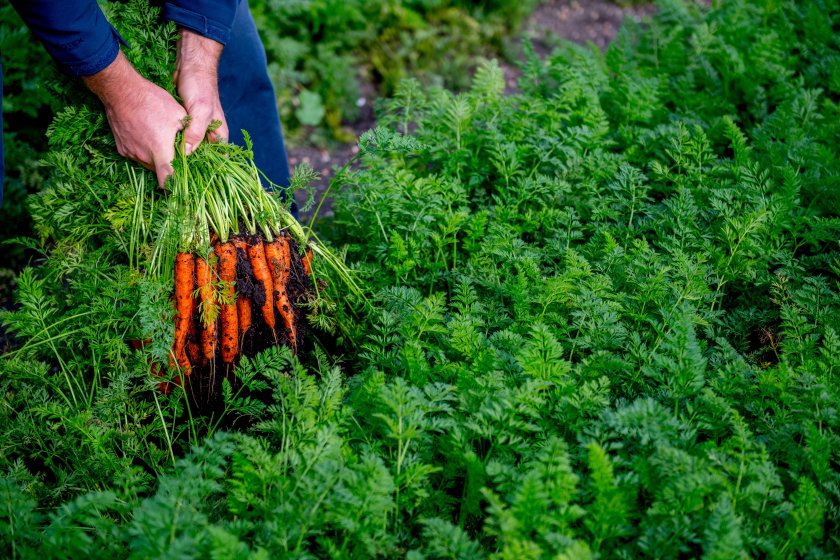
Tesco has announced an expansion of its trial of low-carbon fertilisers to drive a tenfold increase in the number of hectares being cultivated by them.
The fertilisers, produced in the UK, will be used as low-carbon alternatives for next year's growing season, the retailer said today (6 September).
It comes as conventional fertiliser costs have risen by as much as 140% last year, alongside the closure of the UK’s last remaining fertiliser plant.
Tesco said low-carbon fertilisers could be a cost effective and less volatile alternative for farmers struggling with shortages caused by the war in Ukraine.
During the first year of the trial, 1,300 hectares of land were cultivated using eight different low-carbon fertilisers.
Six of them are manufactured in the UK from material including food waste, chicken litter, fire extinguisher waste and algae.
According to the supermarket chain's initial results, they were just as effective as conventional fertilisers while slashing emissions by up to 50%.
Plans to increase the trial to 13,000 hectares next year have been put forward, paving the way for widespread take-up of low-carbon alternatives.
As well as its main vegetable suppliers, Tesco plans to roll out the initiative to more of its Sustainable Farming Groups, many of whom manage pasture and forage-based systems for rearing livestock.
Responding to the roll out, Tesco’s CEO, Ken Murphy said innovations like low-carbon fertilisers were 'part of the solution'.
"As the early results show, they have huge potential to cut greenhouse gas emissions, enhance soil health and water quality, as well as providing greater cost certainty for farmers.
But to realise the full benefits, we need to see action beyond our supply chain - we’ll only get there through cross-industry and cross-party collaboration.
"The food industry is willing to invest, but needs more stability and confidence when it comes to future policy."
The initiative contributes to Tesco’s commitment to halve the environmental impact of the average shopping basket by 2030.
